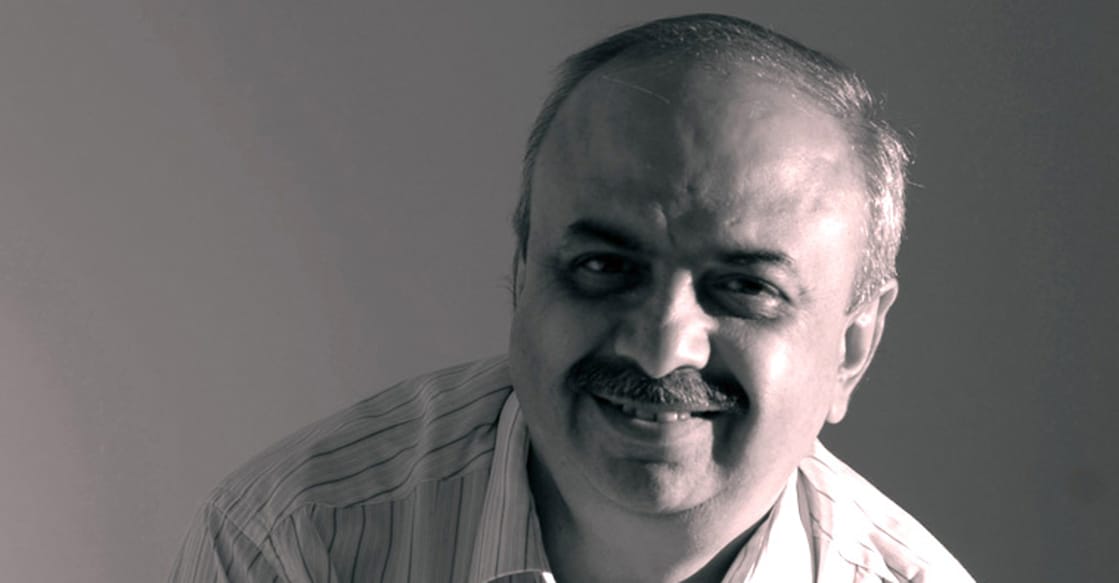Sachi, the quintessential newsperson

Mail This Article
It was around 1975 that we were looking for bright young reporters for the Indian Express in Bangalore. I was one of those entrusted with the task of scouting for talent. I was introduced to Sachi outside the canteen in Central College, Bangalore and we went in for a cup of coffee. He had completed his Bachelor’s degree from Bangalore University in Mass Communication and was looking for an opening in a newspaper.
Within minutes I knew that I was meeting someone who was made for journalism and that we must get him into the Indian Express. I spoke to V N Subba Rao, the doyen of journalism in Karnataka and then the Chief Reporter of the Indian Express in Bangalore.
Rao immediately called Sachi for an interview and hired him. Since then we were a team, acting in tandem, with investigations being our forte. The imposition of the Emergency in 1975 and what followed had a deep impact on our journalism.
I still remember the many assignments we worked on together including the Chickmagalur by-election contested by Indira Gandhi in November 1978. The Congress Party was routed in the Lok Sabha elections in March 1977 and Indira Gandhi lost her own seat in Rae Bareli. This was the price she paid for imposing the Emergency. But, Indira Gandhi was waiting for the moment when she could re-emerge from the ashes and the opportunity came when D B Chandre Gowda, her party MP from Chikmagalur offered to step down to enable her to enter the Lok Sabha from a “safe seat” in Karnataka.
The Janata Party put up the former Karnataka Chief Minister, Veerendra Patil against her. I was despatched to Chickmagalur soon after Indira Gandhi filed her nomination and Sachi followed soon thereafter. It was a gruelling campaign and both of us toured the constituency that extended from the plains of Kadur and Birur to the Western Ghats encompassing Dharmasthala and Karkala and filed our stories via a teleprinter we had set up in a lodge in that town.
Sachi covered George Fernandes’ campaign for Patil and many other stories and his byline became prominent in the multiple editions of the newspaper.
The Indian Express had been identified as a “hostile” newspaper by the Congress Party and we had threatening visits of the NSUI & Youth Congress at our lodge and open threats of violence. Finally, when the counting of votes began, it became obvious that Indira Gandhi was winning the election comfortably and we were advised to pack our bags and leave Chickmagalur post-haste.

Later, I moved to the New Delhi bureau of the Indian Express in 1981 and a year later Sachi left the Indian Express to join the Malayala Manorama group. Sachi was made for the larger canvass and it was just a matter of time before he would move to the national capital. It was indeed a matter of coincidence that while I became the Chief of Bureau of the Indian Express in New Delhi in 1989, the Malayala Manorama group moved Sachi to Delhi. Sachi had a 40-year-long association with the Malayala Manorama.
Sachi was easily the most well-informed journalist in the capital with his contacts ranging from bureaucrats to politicians, artists and business persons. Often, MPs, Union ministers and chief ministers would draw him aside in search of clues on the thinking of the “High Command” and Sachi would honestly share his views and assessments. His personal rapport with politicians was such that often he would be the “agony uncle” for those who failed to get a party ticket to contest elections or those who failed to make the cut in a Cabinet reshuffle.

Sometimes, these telephonic conversations would go on well past midnight. Apart from his phenomenal leg work, he emerged as a widely read columnist in The Week.
My wife Pushpa Girimaji and I met him and Chandrika in Bangalore early July after we heard about his illness. Although he was on oxygen support, he was keen to discuss the social and political issues that dominated the discourse in the country. He wanted me to send him a piece I had written articulating my views, so that he could forward it among his circle of friends.
Sachi and I reminisced about our Bangalore days and the extraordinary professional environment that both of us had under the tutelage of V N Subba Rao at the start of our careers in the Indian Express owned by the feisty Ramnath Goenka.
Sachi was possibly the best news gatherer in the national capital, who would be constantly on the prowl looking for stories. In the process he would often gather a lot of trivia about politicians and share it with professional friends. He was a remarkable raconteur. Many gossip columnists in the nation’s capital would call him regularly for such tidbits, which were non-essential to hard news stories but provided mirth to newspaper readers.

Sachi was not very active on Twitter. He generally preferred to repost something pertaining to sports or light humour. It is indeed ironic that his last activity on his Twitter handle was a repost of a publisher’s Tweet announcing Devdutt Pattanayak’s commentary -- “Death, rebirth, immortality: Garuda Purana” on July 24, 2022.
In his passing, I lost my professional twin brother, who was an encyclopedia on national politics and the quintessential newshound who always remained committed to good journalism.
Sometimes, it sounds like a cliché to say that someone’s death is an irreparable loss. In Sachi’s case, it is not. There can never be another Sachi with such energy and commitment to quality journalism.
(The writer is a senior journalist and former chairman of Prasar Bharati)

